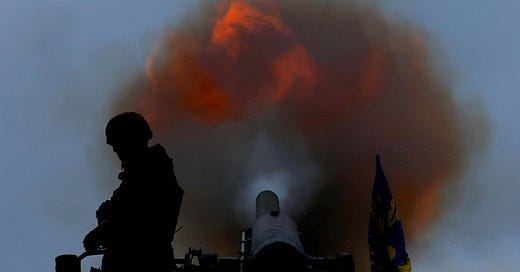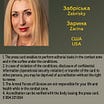Ukrainian Dreams: The Dark Roots of Putin's Nightmare War
As the war in Ukraine enters a new year, Zarina Zabrisky reports on how the conflict has shaped her own life and the dreams of the Ukrainian people
Zarina Zabrisky is an award-winning author and journalist based in Ukraine. In this piece she reveals the deep roots of Putin’s imperial dreams and the nightmare that has since unfolded.
When I was growing up, my world was split in two, though I never realised it—it was just the world I lived in.
I spent summers in Ukraine: in Odesa and in Crimea. My grandfather’s parents, Ukrainian Jews, ran a successful business in Uman, a city in central Ukraine, in the early 1900s and moved to the southern seaport of Odesa to give my grandfather a better life. Their own life went downhill from there. They survived Stalin’s Great Purges and man-made Holodomor (“Death by Hunger”) in the 1930s but did not live to tell the tale. Killed by the German Nazis, they were buried in Babyn Yar, a mass grave in the Ukrainian capital Kyiv, in 1942.
We stayed with relatives in a cozy, pink house covered with ivy, with lazy red cats in a dusty yard sleeping in the sun. Odesa was bursting with colors, sounds, light, scents, and textures—splitting juicy cherries and heirloom tomatoes at a loud farmer's market, sticky cotton candy, music and laughter at the beach, sun sparkling in the sea, soft sand under bare feet; dolphins playing in the waves. Odesa was like a summer dress I wore—light, airy, satin, delightful to touch. I heard the Ukrainian language and surzhyk, one of the dialects spoken in Ukraine, mixing in with Russian, and loved the soft and musical sound. When I swam in the warm sea, I felt free. I wrote my first novel about Odesa, going back to that exhilarating feeling. I never understood why my grandfather moved away from there. I was too young to know about Stalin’s horrors and in the USSR, people did not speak about such things.
Crimea came later, and its bright, fragrant seascape became a part of my inner landscape.
Ukraine was my dream—and not just my dream. Ukraine broke away from the imperial and Soviet past in December 1991, three weeks before the USSR collapsed. The country started a new stage outside of the Kremlin’s matrix. In the 2000s, Ukraine consistently rejected the Kremlin’s new construct: the “Russian World,” the idea of a great empire, dogmas of slavery, autocracy, and terror, and became its own idea of liberty, democracy, and justice. Freedom defines Ukraine. I felt it as a child, in the waves, in the air that vibrated with freedom, and I feel it now, as I report from Ukrainian cities and villages burned and destroyed by Russia.
Keep reading with a 7-day free trial
Subscribe to Byline Supplement to keep reading this post and get 7 days of free access to the full post archives.





